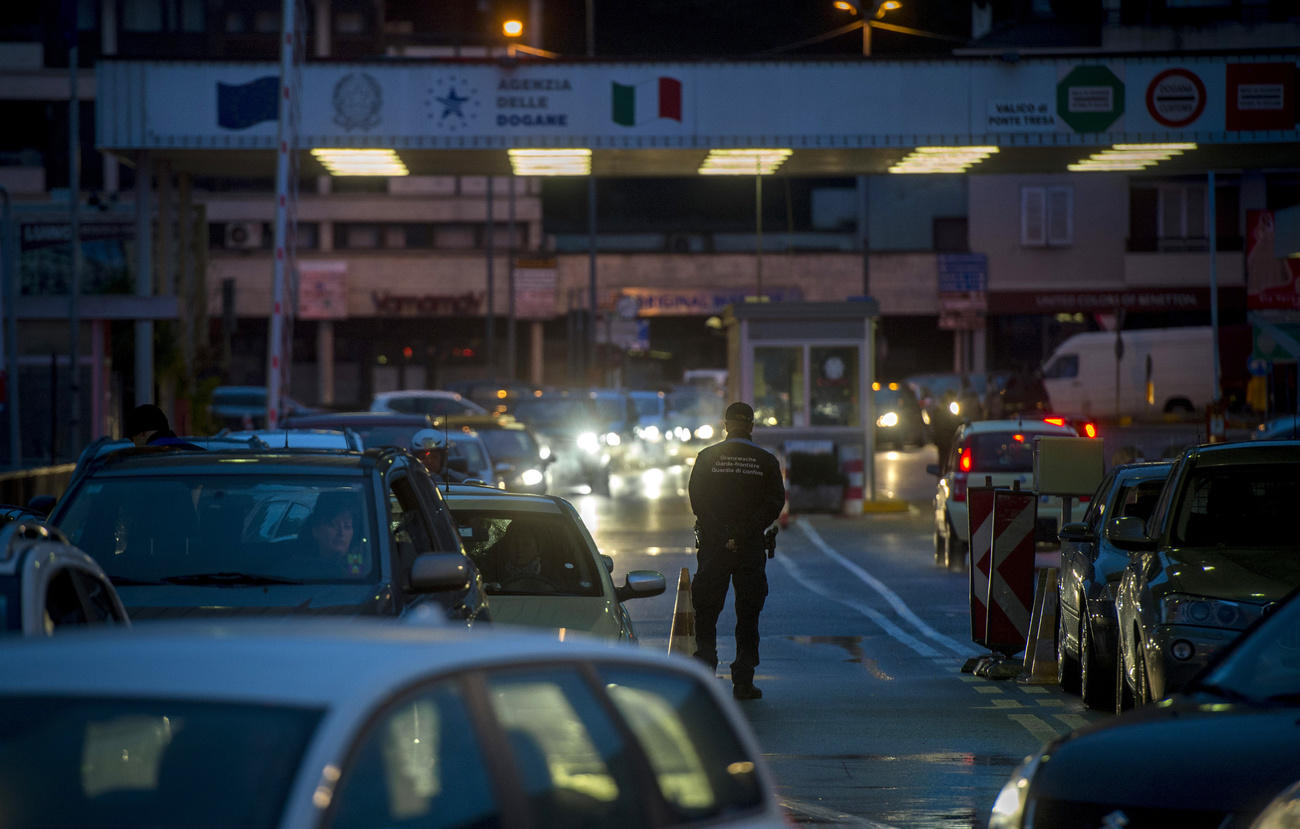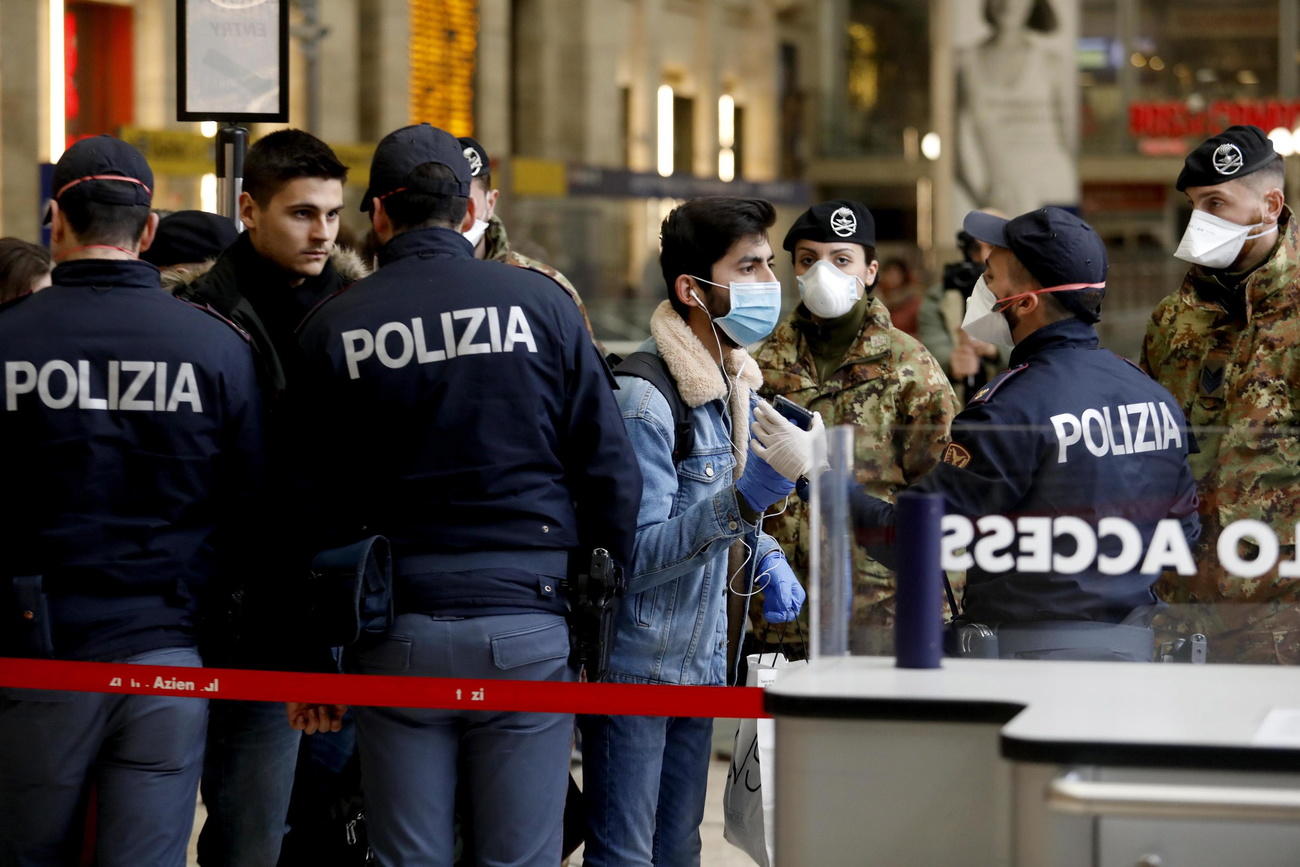
As virus spreads, Ticino curbs social life

The southern Swiss canton of Ticino, bordering Italy, is shuttering cinemas, ski resorts, gyms, nightclubs and non-compulsory schools.
Other cantons may follow with similar measures, announced the federal health office on Thursday.
The hardest-hit Swiss canton is attempting to control the spread of the novel coronavirus. It was here that first infections were detected, and the virus appears to have since started to spread locally.
By declaring a “state of necessity”, the cantonal authorities are taking a series of unusual emergency measuresExternal link that discourage but do not ban participation in public life for people at particular risk.
On Wednesday, the same day that the Geneva-based World Health Organization labelled coronavirus as a pandemic, the Ticino cantonal authorities said its emergency measures would stay in place until March 29. The shut-down does not affect higher education or vocational training establishments.
Among the 12 measures introduced in Ticino is one that discourages people over 65 from looking after children or taking public transport. Restaurants have also been told to limit seatings to no more than 50 people.
Border crossings
Also on Wednesday, the Swiss government closed nine border crossing points to Italy. The move is designed to better control and monitor the influx of workers from its southern neighbour. However, the government has resisted closing down the border altogether. Prior to the outbreak, around 68,000 people commuted for work from Italy each day.
A delegation from Ticino met with federal government ministers and said that other measures would be considered to control the spread of the virus. But officials did not specify which measures are under consideration.
SWISS International Air Lines has now suspended all flights to Italy, along with other European destinations such as Stuttgart, Nuremburg and Bordeaux. The suspension will continue until early April.
Swiss Federal Railways has also restricted its schedule to Venice and Milan, it announced on Wednesday.
Italy remains in a lockdown, including travel restrictions and a ban on public gatherings, as the death toll rises.

More
What does the lockdown in Italy mean for Switzerland?
Clarification: An earlier version of this story referred to the emergency measures as a “state of emergency”, whereas the Ticino authorities have described the emergency measures as being part of a “state of necessity”.

In compliance with the JTI standards
More: SWI swissinfo.ch certified by the Journalism Trust Initiative




























You can find an overview of ongoing debates with our journalists here . Please join us!
If you want to start a conversation about a topic raised in this article or want to report factual errors, email us at english@swissinfo.ch.